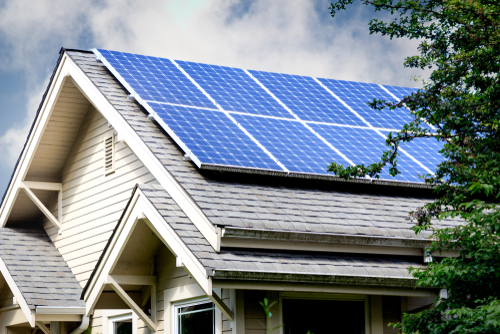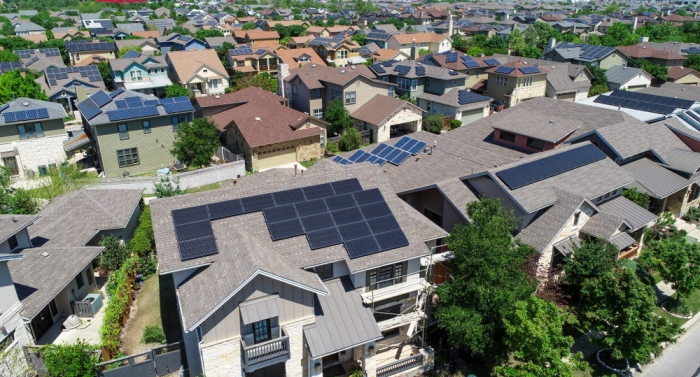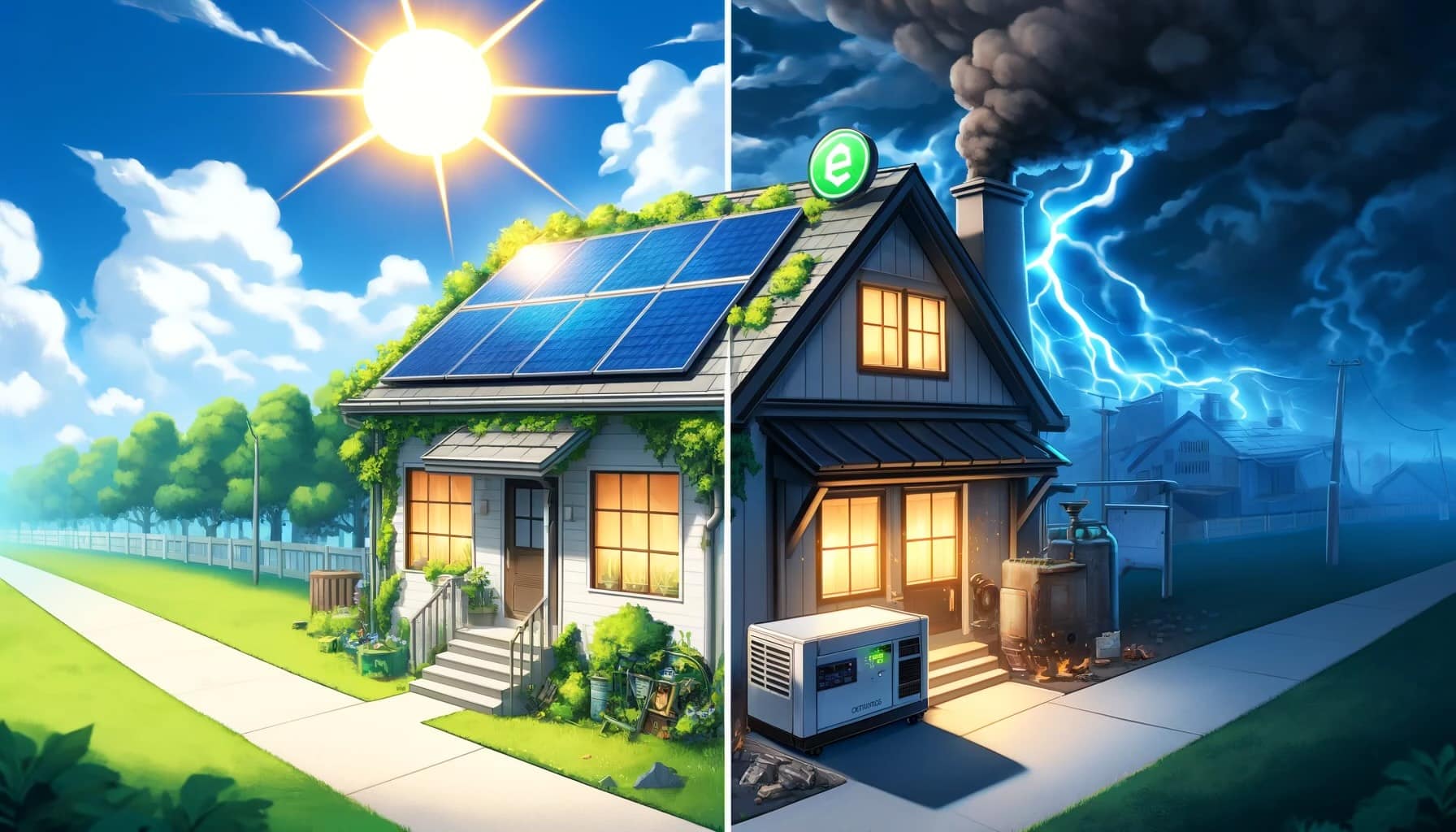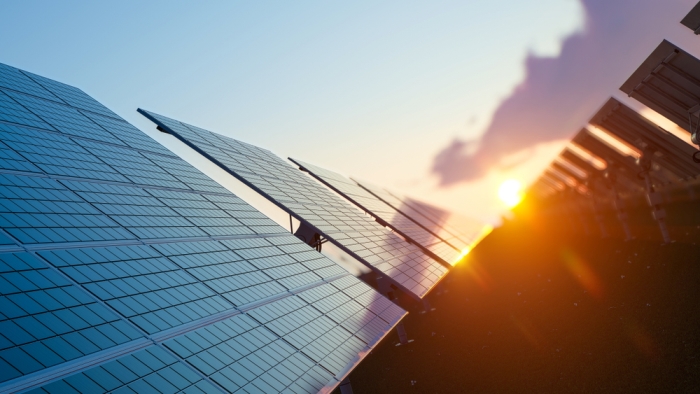Key Takeaways:
- Solar panels can lead to substantial long-term savings on energy costs, despite the high initial investment.
- Various factors, including system size, location, and local incentives, influence both the cost and savings associated with solar panels.
- Environmental benefits and increased property value are significant advantages of installing solar panels.
In an era where sustainability and cost-saving measures are increasingly important, many homeowners are considering the switch to solar energy. But do solar panels really save money for homeowners?
This question is crucial for eco-conscious individuals looking to reduce their carbon footprint and lower their energy bills. In this blog post, we’ll explore the costs and benefits of installing solar panels, offering a detailed and realistic look at whether they are worth the investment.
Understanding Solar Panel Costs
Solar panels represent a significant upfront investment, but understanding the breakdown of these costs can help homeowners make an informed decision. This section will delve into the various aspects of solar panel costs, helping you get a clear picture of what to expect.
Average Cost of Installing Solar Panels
The average cost of installing solar panels ranges from $12,000 to $18,000. This price includes the cost of the solar panels themselves, as well as installation and other related expenses. The final cost can vary based on several factors, including the size of the system, the installation company, and the region in which you live. Understanding these variables can help you budget more effectively for your solar panel investment.
Energy Rates
There’s also the cost of energy itself to take into account. Energy costs vary from one state and utility company to the next. The US Energy Information Administration maintains a table of average electricity costs for consumers.
The higher the monthly cost of an electric bill, the more potential exists for saving money with solar panels in the long term.
The variability of energy costs is also important to consider. Having the certainty that comes with generating your own electricity with solar panels is important. Solar systems don’t only save money, they can protect you from significant price fluctuations that can make budgeting more difficult.
Factors Affecting Installation Costs
Several factors influence the overall costs of installing solar panels:
- System Size: Larger systems that generate more electricity will naturally cost more.
- Equipment Quality: Higher quality panels and inverters can increase the initial investment but may offer better efficiency and longevity.
- Installation Company: Different companies may charge varying labor costs, so it’s wise to get multiple quotes.
- Location and Complexity: The geographical location and complexity of the installation site can also affect the final price. Roof type, pitch, and shading are all considerations.
Benefits of Solar Panels
While the initial investment in solar panels can be substantial, the benefits often outweigh the costs, thanks to various financial incentives and long-term savings. In this section, we will explore these benefits in detail.

Tax Breaks and Incentives for Installing Solar Panels
One of the most compelling reasons to install solar panels is the availability of tax breaks and incentives. The federal solar tax credit, for example, offers up to 30% off the cost of installing solar panels.
Additionally, many state and local governments provide further incentives and rebates, making the switch to solar even more appealing. These financial benefits can significantly reduce the upfront costs of your solar installation.
Environmental Benefits of Solar Panels
Solar panels produce clean, renewable energy, significantly reducing your carbon footprint and reliance on fossil fuels. By generating your own electricity, you contribute to a more sustainable future.
This shift not only benefits the environment but can also lead to reduced energy costs, saving you money in the long run. The positive environmental impact of solar panels is an added bonus to the financial savings they offer.
How Solar Panels Save You Money
The primary question for many homeowners is, “Do solar panels save money?” The answer is often yes, but the extent of savings can vary. This section will provide a deeper understanding of how and why solar panels can be a smart financial decision.
How Much Do Solar Panels Save on Average?
On average, households can save up to $1,500 per year on energy costs with solar panels. These savings depend on various factors, such as energy usage, system size, and local electricity rates.
In regions with higher electricity costs, the savings can be even more substantial. Over time, these savings can add up, making the initial investment in solar panels well worth it.
Factors That Influence Savings
Several factors influence the amount of money you can save with solar panels:
- Energy Usage: Higher energy consumption typically leads to greater savings.
- System Size and Efficiency: A larger, more efficient system will generate more electricity, increasing potential savings.
- Local Electricity Rates: Regions with higher electricity rates offer more significant savings opportunities.
- Climate: Areas with more peak sun hours can generate more electricity, leading to increased savings.
Solar Panel Savings: An Example
Let’s say your total costs to install and activate the solar system are $12,000. With no other rebates or credits (and plenty are available), you can receive a 26% credit from the federal government if you install in 2022. That’s a savings of $3,120, bringing the upfront cost down to $8,800.
The national average cost for a kilowatt-hour (kWh) is 14.29 cents, according to the EIA. The EIA also places the national average consumption at 893 kWh. That’s roughly $130 dollars a month spent on your energy bill, or $1,560 a year.
If you can generate 75% of your own electricity with solar panels, that leaves you only needing to purchase the remaining quarter from a utility company. Your utility bill would drop to $32.50 a month and you would save $97.50 on each bill — $1,170 in a year.
Those cash savings mean you would reach your break-even point in a little under eight years. Solar systems regularly last for 25 years or more. That means about 17 years of active savings, where you have addressed all upfront costs — about $20,000 in savings!
Long-Term Savings and Payback Period
Understanding the long-term financial benefits of solar panels can help homeowners see the true value of their investment. This section will discuss the payback period and return on investment for solar panels.
What Is the Average Payback Period for a Solar Panel System?
The average payback period for a solar panel system is around 5 to 10 years. This period can vary based on upfront costs, energy savings, and local incentives.
Once you’ve recouped your initial investment, the electricity generated by your solar panels essentially becomes free, providing substantial long-term savings. The sooner you reach the payback period, the sooner you start enjoying the financial benefits of your solar investment.
Long-term Solar Savings and ROI
After the payback period, solar panels can offer decades of free electricity. They can also increase your property value, providing a solid return on investment.
Homes with solar panels often sell for more and attract environmentally conscious buyers. The long-term financial benefits of solar panels make them a smart investment for homeowners looking to save on energy costs and increase their home’s value.
Maximizing Solar Energy Savings
To ensure you get the most out of your solar panels, it’s essential to maximize their efficiency and effectiveness. This section will provide tips and strategies for optimizing your solar panel system.
How to Maximize Solar Energy Savings
Proper installation and maintenance are key to maximizing solar energy savings. Make sure your system is installed correctly and routinely maintained. Monitoring energy usage and adjusting consumption patterns can also help optimize savings.
If possible, consider energy storage options like batteries to store excess energy. These steps can help you get the most out of your solar panel investment.
Tips for Getting the Most Out of Your Solar Panels
- Optimal Installation: Ensure your solar panels are installed at the optimal angle and direction to capture the most sunlight.
- Maintenance: Regularly clean and maintain your panels to ensure they are free of debris.
- Upgrades: Consider upgrading to more efficient panels or inverters as technology advances.
Weighing the Pros and Cons
Before deciding to install solar panels, it’s crucial to weigh the pros and cons. This section will help you consider all aspects of solar panel installation.
What to Consider When Deciding If Solar Panels Are Worth It
- Upfront Costs: Consider the initial investment and explore financing options.
- Energy Savings: Calculate potential energy savings and the payback period.
- Environmental Impact: Assess the environmental benefits and how they align with your values.
- Local Incentives: Research local incentives and policies that can offset costs.
Ready to Go Solar and Start Saving?
Installing solar panels can be a significant investment, but the long-term savings and environmental benefits often make it worthwhile. Consider consulting with a solar panel professional to determine the best system for your needs.
By weighing the pros and cons and understanding the long-term benefits, you can make an informed decision about whether solar panels are the right choice for you.
Take the first step towards a sustainable future and significant energy savings by contacting Sun Source Energy today. Our experts are ready to help you design and install the perfect solar panel system for your home. Don’t wait—start saving money and protecting the environment now!
Start saving money on your electricity bill. Go solar with Sun Source Energy today.






